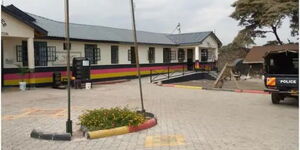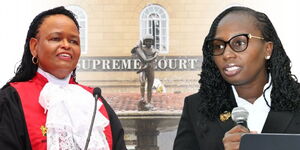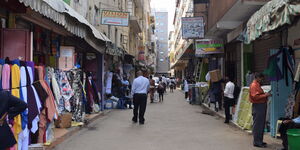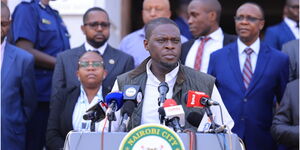The Judiciary on Saturday, August 1, clarified media reports on clipping of powers of the Office of the Director of Public Prosecutions (DPP) Noordin Haji.
In a statement to newsrooms, the Judiciary stated that the Ethics and Anti-corruption Commission (EACC) or any other institution had not been given the go ahead to prosecute cases.
"The Judiciary wishes to clarify that the Court of Appeal did not allow EACC or any other body, institution or organ to prosecute as reported in sections of the media. Any media reports to the contrary are therefore false and misleading," the statement read in part.
The Institution further affirmed that the mandate of the DPP was firmly settled beyond debate by Article 157 (6)(a), (b) and (c) of the constitution that it was only the DPP that could institute, undertake, take over and continue all crminal proceedings in any court.
This was only exempt for a court-martial for all the offences including offences under Anti-Corruption and Economic Crimes Act (ACECA).
"With leave of the court, and before judgement, he can discontinue any criminal proceedings that may have been instituted or taken over by the DPP before the creation of the ODPP under the 2010 constitution. It is as clear and simple as that," the Judiciary stated.
The ruling by a five-judge bench was comprised of judges William Ouko, Martha Koome, Asike Makhandia, Agnes Margoe and Majilla Mohammed.
The existing legal framework does not give the EACC the power to prosecute criminal cases. The Commission investigates cases that fall within its mandate and makes recommendations to the Director of Public Prosecutions for appropriate action.
However, regarding civil cases relating to corruptly acquired assets, EACC has powers to file cases in court for recovery of such assets.
The DPP has made strides in his efforts to revamp the office and succeed in securing convictions even in high profile cases. when he launched guidelines on the Decision to Charge and Automated Case Management System.
The Decision to Charge guidelines, which are the first in Kenya’s history, will help state prosecutors on making the critical decision on charging suspects.
The decision to charge is one of the most important decisions that a prosecutor makes before taking the suspect to court.
The new criteria will advise state prosecutors on who, how, when, where and why to charge suspects.












